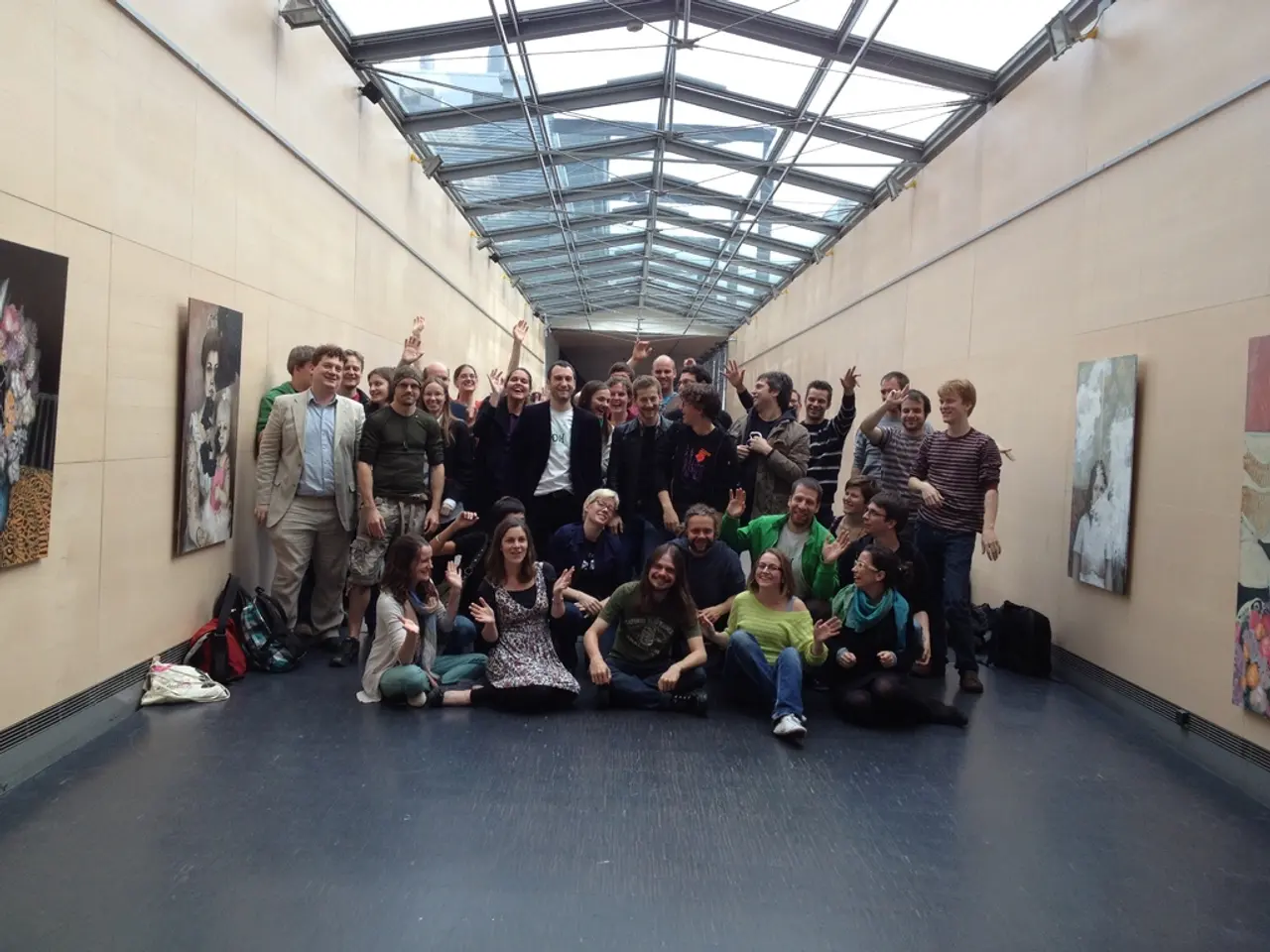Immediate provision of food and medical aid requested by Netanyahu for captives
In the troubled region of Gaza, the death toll continues to rise as the ongoing conflict between Hamas and Israel shows no signs of abating. At least 44 lives have been lost in Gaza hospitals as a result of Israeli attacks, according to reports.
The roots of this conflict run deep, stemming from political, territorial, and security disputes. Hamas, a Palestinian militant group governing Gaza, and Israel have a long history of clashes over control of the Gaza Strip, security concerns, and mutual hostility. These conflicts often escalate into warfare and include the capture of hostages, further complicating negotiations.
A recent example of this was the 2025 Gaza war ceasefire and its subsequent breakdown. A negotiated ceasefire and a hostages-and-prisoners exchange agreement were initiated in early 2025, aiming to end the war, release Israeli hostages held by Hamas, and allow for reconstruction in Gaza. This proposal was mediated by the U.S., Egypt, and Qatar and endorsed by the UN Security Council (Resolution 2735). However, accusations from both Israel and Hamas sides of hindering the proposals led to the ceasefire’s collapse in March 2025. Israel then resumed airstrikes on Gaza, citing Hamas’s refusal to release hostages and extend the cease-fire as justification.
The international community, including mediators like the United States, Egypt, Qatar, and the United Nations, plays a central role in attempting to broker ceasefires, negotiate prisoner exchanges, and endorse resolutions aimed at de-escalation and reconstruction. However, political complexities, domestic opposition (within Israel and internationally), and distrust between parties have limited these efforts’ success.
Amidst this turmoil, the situation in Gaza continues to deteriorate. The Palestinian enclave is on the brink of famine due to the months-long blockade by Israel. Since March 27 until July 31, 1,373 Palestinians have died while trying to obtain food at both Gaza Humanitarian Foundation (GHF) centers and waiting for trucks to pass. At least 24 Palestinians were killed near food distribution points or on roads where trucks with humanitarian aid were passing, allegedly due to Israeli army shootings.
The Gaza government, controlled by Hamas, claims that Israel is blocking the entry of 22,000 trucks of humanitarian aid accumulated at the border crossings of the Palestinian enclave. The European Union's High Representative for Foreign Affairs, Kaja Kallas, described the latest images of Israeli hostages as "horrifying" and evidence of Hamas' "barbarism."
In response, Israeli Prime Minister Benjamin Netanyahu called on the International Committee of the Red Cross to provide immediate food and medical attention to hostages held by Hamas in Gaza. Israeli Minister of National Security, Itamar Ben Gvir, visited the Al Aqsa Mosque compound in Jerusalem, participating in Jewish prayers, breaking with the agreed status quo after Israel's occupation of East Jerusalem in the 1967 war. This visit was met with condemnation from Hamas, who accused Israel of "fanning the flames."
Kaja Kallas, the Prime Minister of Estonia, called for the immediate and unconditional release of all captives and large-scale humanitarian aid to reach those in need. The status quo governing the Temple Mount, known as the Noble Sanctuary to Muslims, has not changed and will not change. The status quo agreed with Jordan reserves the Temple Mount for Muslim worship, while Jews can visit during limited hours but not pray openly.
As the conflict continues, the international community must find a way to de-escalate the situation, provide humanitarian aid, and work towards a lasting peace. The fate of the hostages and the people of Gaza hang in the balance.
- Amidst the ongoing conflict, the mental and physical health of the people in Gaza is of great concern, with at least 1,373 Palestinians reported dead due to the blockade and alleged Israeli army shootings while trying to obtain food.
- Political wrangling has complicated efforts to broker ceasefires and negotiate prisoner exchanges in Gaza, with accusations of hindrances from both Israel and Hamas leading to the collapse of the 2025 ceasefire proposal, further fueling the war and health-and-wellness crisis.
- The international community, such as the United States, Egypt, Qatar, and the United Nations, continue to play a central role in mediating peace talks, endorsing resolutions, and providing humanitarian aid to the general-news stricken region of Gaza. However, domestic opposition and distrust between parties have made these efforts arduous.
- Science and politics intersect in the context of the ongoing Gaza conflict, as the international community struggles to find lasting solutions to this mental-health and crime-and-justice issue, while also navigating the intricate web of war-and-conflicts and politics in the region.




